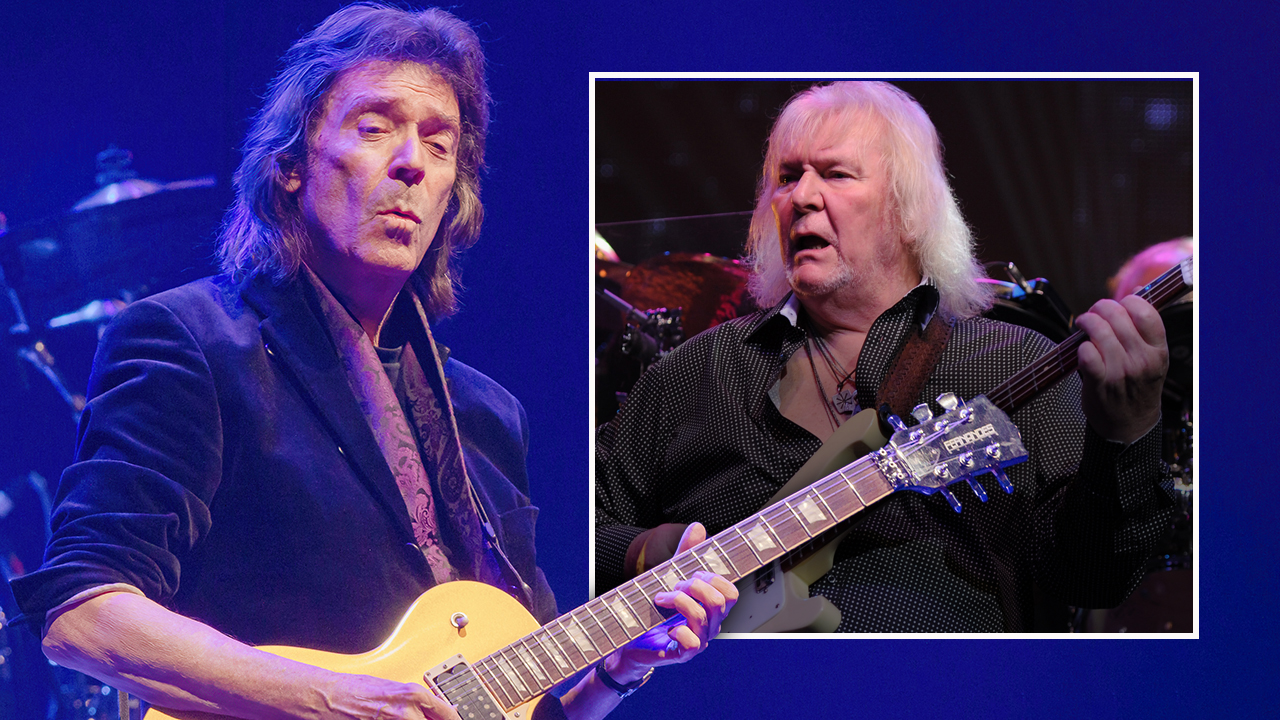Enslaved and the making of Utgard
In 2020 Norwegian prog metallers Enslaved released Utgard, their proggiest album to date. This is the story...
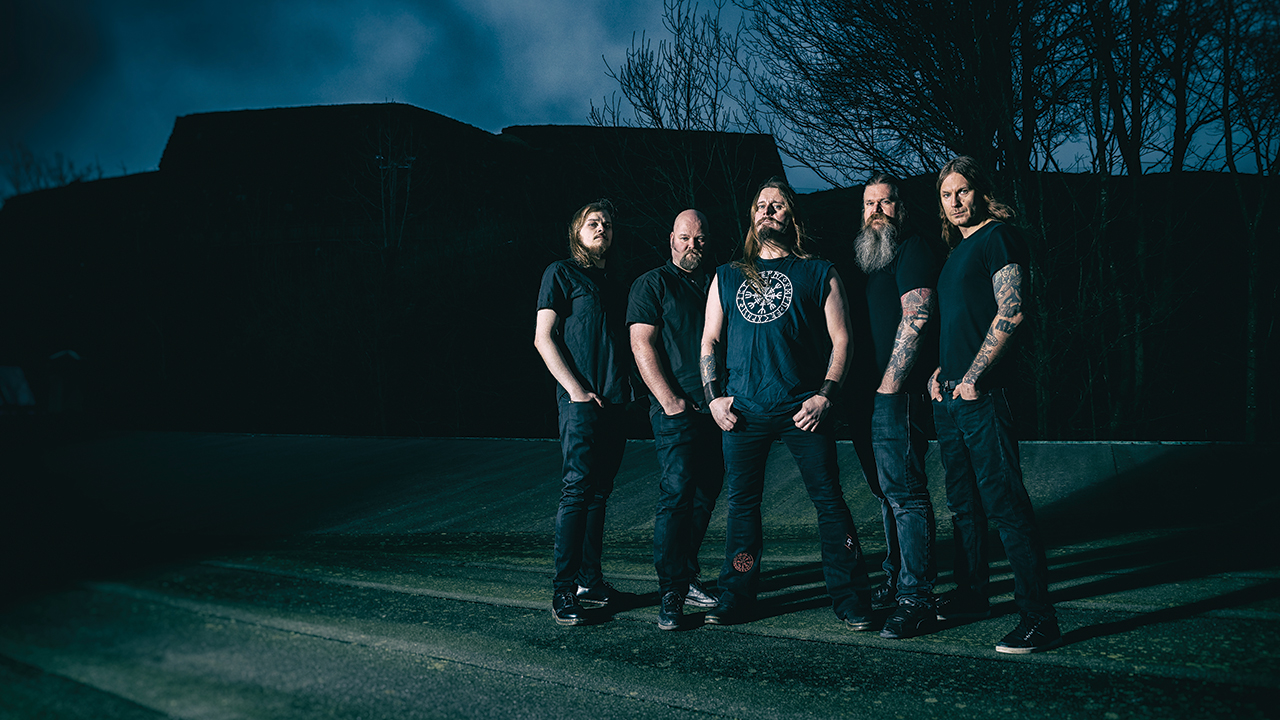
2020 has been a thoroughly ruinous year for just about everyone, but some parts of the world have weathered the coronavirus crisis with almost nonchalant ease. Still based in their native Bergen, Norway, Enslaved have had their plans for this year thrown into disarray like everyone else, from the delayed release of 15th studio album Utgard to the scuppering of the band’s traditionally hectic gig schedule. But as co-founder and chief songwriter Ivar Bjørnson tells Prog, Bergen was always well equipped to deal with a pandemic, if only on a cultural level.
“People live quite far away from each other here, so the whole social distancing thing is not that tricky to do,” the guitarist reasons. “You hear a lot of Norwegians say, ‘Well, I always thought it was weird to hug that much anyway!’ [Laughs.] So it kind of fits, in a sense. Of course it was strange, like everywhere else, to begin with, but it was fairly quick too. By the end of April they started opening schools and kindergartens. So I think we all feel quite grateful to be living here during these times. Luckily, the officials seemingly chose a line of action that was successful.”
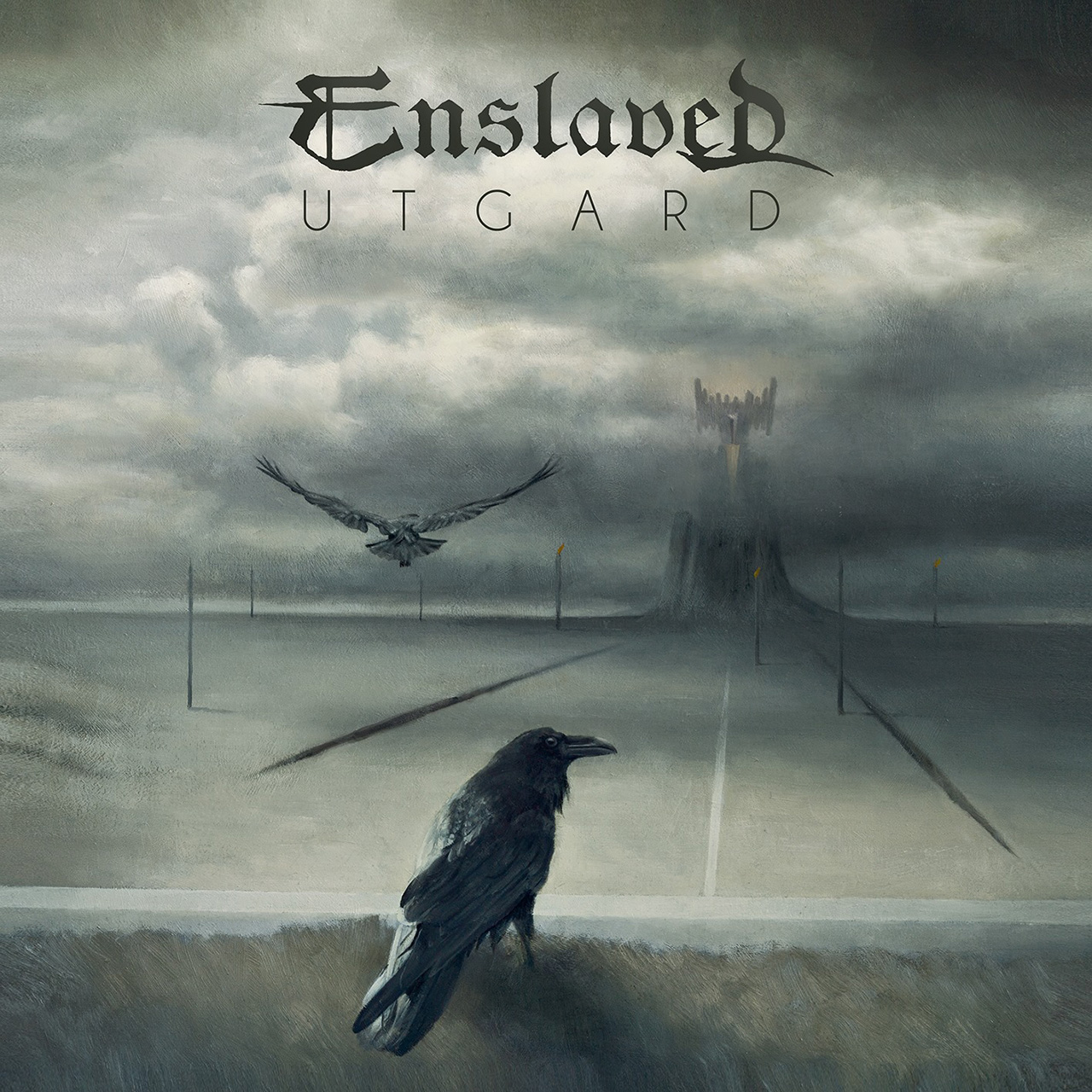
It has become almost routine that Enslaved will release an extraordinary new album every two or three years. Like its numerous dazzling predecessors, Utgard once again reinvents the unique blend of left-field extreme metal, old-school prog detours and epic experimentation that the Norwegians have nurtured and refined over the last 29 years. In the process, they have outgrown their origins in the metal underground of the early 90s, and become a bona fide fixture in the prog world. With that in mind, Utgard feels like a watershed moment. It is, after all, Enslaved’s first real concept album.
“We’ve done records that have been themed, but this is a full-blown concept about Utgard,” Bjørnson explains. “You hear a lot about Asgard these days, especially thanks to the Marvel movies, and that’s where the good guys hang around in Norse mythology, the gods we know so well, like Odin and Thor. But there’s also this land beyond that, known as Utgard. Directly translated it would mean ‘the outer place’. It’s where the giants, the creational myths of Norse mythology take place. What we’re doing is drawing it into more of the psychological realm, inspired partly by Carl Jung’s writings about Utgard representing the shadow side of the self. We’re very inspired by all this stuff, but we’re not scholars, we’re not academics. It’s still music, you know? You can just headbang to the kick drums if you want, and that’s excellent too.”
The rarely spoken truth about Enslaved’s prog journey is that it began in earnest way back in the late 90s, and was more than apparent as early as 2000’s Mardraum – Beyond The Within. Even so, Utgard is full of audacious surprises: from Jettegryta’s lysergic Hammond breakdown through to the sparkly eyed post-rock of the sprawling Flight Of Thought And Memory. Most startling by far is Urjotun, a thunderous none-more-krautrock track with spiralling, sequenced synths and an exhilarating motorik pulse. Bjørnson and fellow co-founder Grutle Kjellson (vocals, bass) have been dabbling in similar waters for many years now, embellishing their albums with plenty of retro keys and psychedelic textures, but this is their most blatant lurch away from their former metal path yet.
“Well, krautrock has been this ghost in the background for a long time,” notes Bjørnson. “Funnily enough, it was one of the things that was very eagerly promoted by [early 90s black metal scene guru and original Mayhem guitarist] Euronymous back in the day, in the early 90s in his shop in Oslo, Helvete. I was 15 or 16, like a tough kid, ‘So, what’s the coolest new black metal albums?’ and he’d be like, ‘Forget about that, check out this section!’ and that was where he kept the 70s prog and krautrock records. He said, ‘This is what you need to listen to!’ and so we did.”
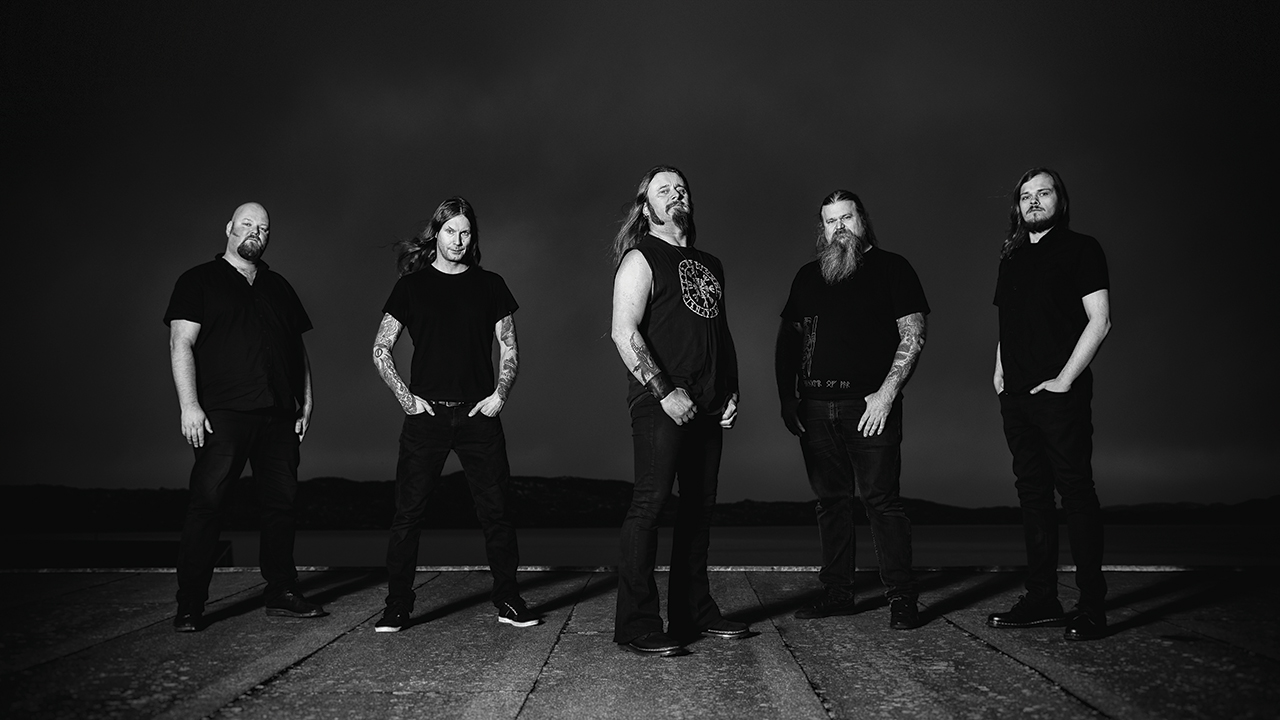
While previous albums and multiple interviews over the years have made it abundantly clear that Enslaved are fans of krautrock and esoteric prog in general, Utgard sounds like a genuine kicking opening of the creative floodgates, as all of the band’s kaleidoscopic influences collide. On the tooth-rattling Urjotun in particular, you can almost hear Bjørnson and his bandmates grinning euphorically at each other as they have the time of their lives setting fire to the rulebook.
Sign up below to get the latest from Prog, plus exclusive special offers, direct to your inbox!
“It was a Sunday, I was heading down to the demo studio, and I just had this weird feeling of wanting to do this riff that I had on the Moog, this sequencer thing that I’d been playing around with,” Bjørnson recalls. “I thought, ‘Let’s make a song out of it!’ I seem to remember there was quite a lot of wine involved, during the day, because it just had that vibe. The next day, listening to it, I was like, ‘Yes, here we have it!’ The rest of the band was just as enthusiastic, because this was a song we’d been waiting to do for a long time.”
Utgard’s other truly jaw-dropping moment arrives at its conclusion: Distant Seasons is, quite conspicuously, the most overtly melodic song that Enslaved have ever recorded, with a sublime vocal performance from new drummer Iver Sandøy.
“The inspiration for that song was just one of the silliest, simplest things,” says Bjørnson. “I was on a trip to Sweden, pre-plague, spending a few weeks with my family in the countryside. I thought there might be one or two more songs to write for the coming album, but that I could do that when I got back to Bergen. I was sitting outside our little cottage, just watching my two little girls playing in the grass, like, ‘What a super prog cliché! What is this? Am I in a prog video now?’ [Laughs] So I was watching and then thinking about our long journey through Utgard, and it just clicked in that moment and I heard the music. I went inside, fired up the laptop that I’m not supposed to use when we’re on holiday, and started writing down the notes
I was hearing. Then Iver pretty much took it from there and he did an amazing job.”
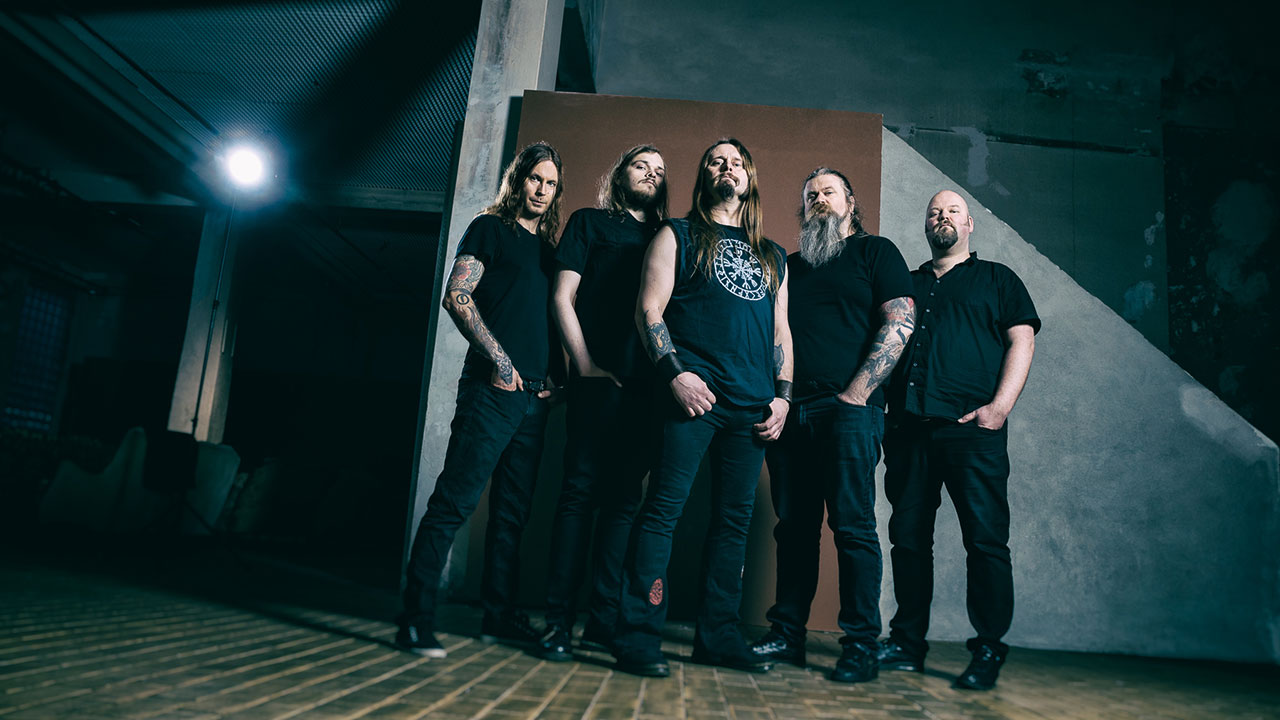
When long-time drummer Cato Bekkevold resigned in 2018, after 15 years of active service behind the kit, Enslaved turned to frequent collaborator and co-producer of several recent albums, Iver Sandøy, who just happens to be an excellent drummer too. Everything has clearly worked out well, but Bjørnson cheerfully admits to using strong-arm tactics to secure their new recruit.
“This line-up change felt quite big,” he muses. “When Cato said that it was time to retire… You know, the guy’s been playing double bass drums since 1992, so we can’t complain and we can only thank him for his service. We had this moment when we said, ‘We’re not going to put out an ad and have auditions and all that. If Enslaved’s going to continue, it’s pretty much Iver or bust, because we’re too old for this now!’ You know, it’s not an enterprise, it’s a labour of love. So basically we said, ‘So, we want you to be the new drummer… and, by the way, if you don’t want to be the drummer, the band’s over!’ [Laughs.] So no pressure!”
Few bands ever make a fifth album, let alone their 15th, but Enslaved have somehow navigated three decades with the majority of their early metal fanbase still more or less engaged. Meanwhile, they’re still growing in popularity, particularly in the prog world, where they seem to have found a more natural and accommodating home for their intrepid exploits than the often myopic metal underground. If fans have followed the band to this point, Utgard probably shouldn’t freak them out too much, but as Bjørnson cheerfully accepts, every Enslaved album is greeted with a small degree of horror by certain sections of their support. Endearingly, he is perfectly happy to agree with them.
“I don’t perceive that stuff as resistance,” he shrugs. “Possibly because we’ve been on this journey together for such a long time, our fans have certain expectations and really they’re hopes. They’re hoping for the band to do more of this one thing that we did, heading down a certain alley and so on, and I do respect that. I have the same relationship with my own favourite bands. We’ve been through phases where people have said, ‘Oh my God, why have you done this? You’ve ruined the band!’ [Laughs.] Instead of getting angry or clamming up, we do the opposite and say, ‘Yeah, I totally see that!’ If Frost [Enslaved’s second album, 1994] was the best musical experience of your life, then it’s totally understandable that an album like Vertebrae [2008] or even this new one would be a disappointment.”
Although he’s incredibly reasonable about the whole thing, Prog asks him if he thinks it’s possible to keep everyone happy.
“Well, we do play the old songs live when it’s appropriate and when they fit into the set. We honestly have a great relationship with our old material. It’s part of the development of the band. In that sense, it’s a totally open dialogue. For me, a fan that mainly cares about the first two albums is just as important as anyone else. It’s just time. They’re all still supporting Enslaved. There’s always that mutual respect there.”
Surely Bjørnson must take some satisfaction from the fact that Enslaved are now the
most extreme thing that a lot of prog fans will listen to?
“Yes, and I think that’s wonderful. One of the things that is most rewarding, from being in a dialogue with the prog scene, is that there’s such a clear and stated interest for the art. That’s what comes first, the art and the music. It’s all fun and good times and sometimes you have a lawnmower on your head, and that’s a good laugh. Sometimes it’s dramatic and biblical, but there’s a lot of tongue-in-cheek going on in prog too, which is definitely something we appreciate.”
In a year defined by upheaval and struggle, Enslaved seem to be taking everything in
their stride with the guile of true champions. Utgard is yet another high point along
a musical voyage that long ago ditched the satnav and embraced the thrill of the unknown. As ever, Ivar Bjørnson is already anticipating what his band will do next.
“I think there’s gonna be more of the electronic stuff. We’re working on our whole instrumentation approach, using old synths and sequencers and having some more fun with that,” he enthuses. “When we play Urjotun now, I play bass on some parts and Håkon [Vinje, keyboards] does some guitars. We were joking about Genesis in the 70s, when they’d have designated rehearsal times for instruments and costume changes! So we’re changing instruments now, and maybe there’ll be a costume change also…”
Perhaps they could just change their T-shirt during the interval? Pink Floyd in the first half, Bathory in the second…
“That’d be perfect! Or we could just change boxer shorts, and nobody will know!”
This article originally appeared in issue 114 of Prog Magazine.

Dom Lawson began his inauspicious career as a music journalist in 1999. He wrote for Kerrang! for seven years, before moving to Metal Hammer and Prog Magazine in 2007. His primary interests are heavy metal, progressive rock, coffee, snooker and despair. He is politically homeless and has an excellent beard.
